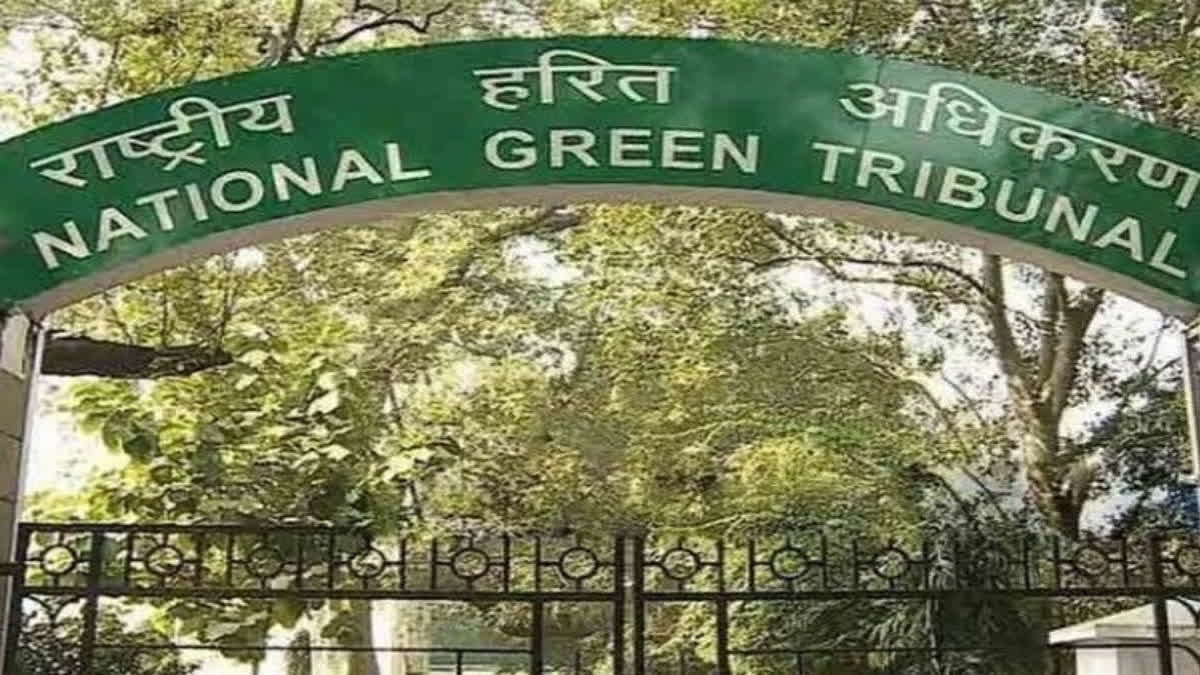New Delhi: Noting the key issues relating to the pollution of the Ganga and its tributaries in West Bengal, Uttarakhand and Uttar Pradesh, the National Green Tribunal has issued notices to District Ganga Protection Committees in the three states and sought a report from the district magistrates concerned.
The tribunal was hearing the matter regarding the prevention and control of pollution of the Ganga in the three states. The Ganga flows through 10 districts in West Bengal while its tributaries are spread across around 15 districts. The Ganga and its tributaries flow through 13 districts in Uttarakhand while the main stream of the river flows through 27 districts in Uttar Pradesh.
A bench of Chairperson Justice Prakash Shrivastava said in a recent order, "Let notice be issued to the District Ganga Protection Committees concerned in West Bengal through their ex-officio chairman (district magistrates) for submitting a report. " "We direct the district magistrates of all the districts from where the mainstream of river Ganga and its tributaries flow in West Bengal to submit their own separate reports on the issues in respect of steps which have been taken by the committees for prevention and control of pollution of the river Ganga in their respective areas," the bench, also comprising Justice Sudhir Agarwal and Justice Arun Kumar Tyagi and Expert Member A Senthil Vel, added.
In a separate order for Uttarakhand, the tribunal sought a report from the 13 District Ganga Protection Committees and also directed the district magistrates to submit reports regarding the steps taken to curb pollution. For Uttar Pradesh, however, the tribunal directed the state's counsel to produce a chart disclosing the details of the Ganga's main stream and the tributaries flowing across each district.
It also sought a report from all 75 District Ganga Protection Committees in the state. The green panel identified the discharge of untreated sewage, industrial effluents, hazardous waste and biomedical waste into the river, besides encroachment of the floodplains and sand mining as the key reasons for the Ganga's pollution in West Bengal.
It noted that according to the information submitted by the counsel for Uttarakhand, the major issues regarding the Ganga's pollution included receding glaciers, unregulated tourism, discharge of sewage and other waste, illegal mining and contamination with pesticides and other chemicals. The important issues pertaining to the river's pollution in Uttar Pradesh include surface water contamination through drains, pathogenic and organic pollution, groundwater contamination, discharge of sewage and other waste, unregulated mining and tourism-related pressure on the resources, according to the submission of the state's counsel.
The matter has been listed on November 24, December 4 and December 6 for further proceedings regarding Uttarakhand, Uttar Pradesh and West Bengal, respectively. On August 28, the tribunal underlined that the issue relating to the prevention and control of the river's pollution would be taken up for the entire stretch of the river, covering each state, city and district.



